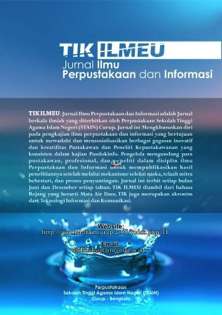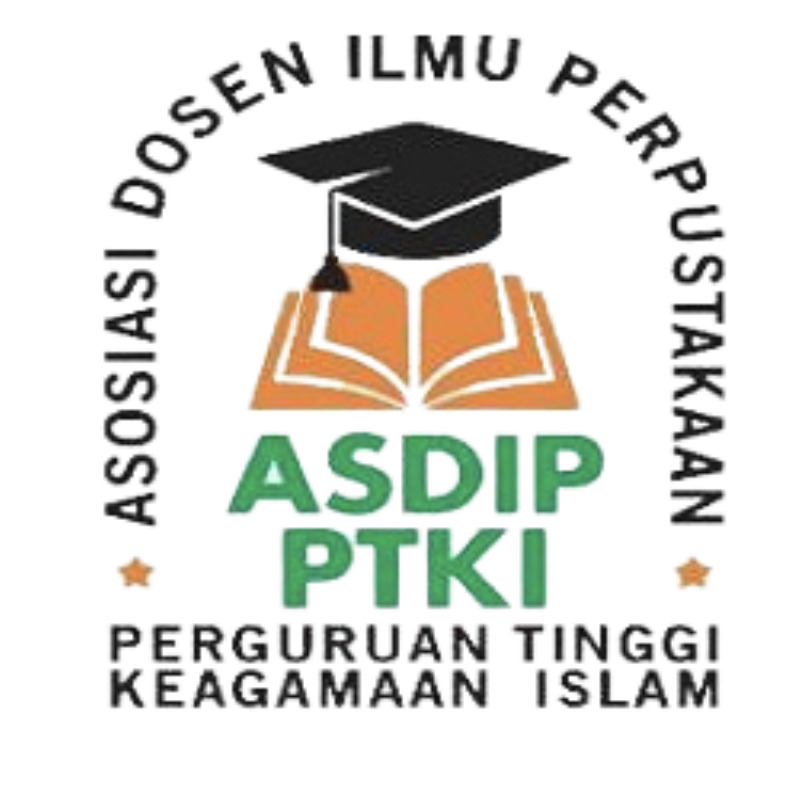Analisis Flow Experience Pemustaka Pada Website Repositori Universitas Sriwijaya
DOI:
https://doi.org/10.29240/tik.v7i1.5711Keywords:
Flow Experience, Repository, LibraryAbstract
This research is motivated by information technology advances that force users to use repositories as a source of information. The capabilities and challenges users face in using the repository website can be a benchmark for achieving a flow experience. Objectives: To determine the level of flow experience, the factors that influence the flow experience, and the most dominant factors affecting users' flow experience. Input and considerations in making website development decisions and achieving excellent service. The research method used is quantitative research and exploratory factor analysis. The sample is 106 using purposive sampling. The result is that most users who use the UNSRI repository are women, 64.49%, aged 16-25 years, 88.79% with the latest educational background, the majority being senior high school students, amounting to 63.55%. The assumption is that the users using the UNSRI repository are students pursuing undergraduate education. The level of users' flow experience on the UNSRI repository website, as many as 57 users, is categorized as flow. Then there are 33 users classified as frustrated. Libraries can review procedures for accessing files stored in the repository. Training or information literacy on using repository files should be carried out regularly
Downloads
References
Adamu, Rilwan. 2017. “Assesment of Library Service Quality and User Satisfaction among Undergraduate Students of Yusuf Maitama Sule University (YMSU) Library.†Library Philosohy and Practices (e-journal) (September 2017): 1–20. https://digitalcommons.unl.edu/libphilprac?utm_source=digitalcommons.unl.edu/libphilprac/1675&utm_medium=PDF&utm_campaign=PDFCoverPages.
Adhitama, Moh Laksamana, Eriq Muhammad A Jonemaro, and Wibisono Sukmo Wardhono. 2020. “Evaluasi User Experience Gim Defense of the Ancients 2 (DotA 2) Menggunakan Metode Flow Framework.†Jurnal Pengembangan Teknologi Informasi dan Ilmu Komputer e-ISSN 2548(1): 964X.
Csikszentmihalyi, Mihaly. 1996. FLUIR (FLOW). ed. Kairos. Barcelona.
Csikszentmihalyi, Mihaly. 1975. Beyond Boredom and Anxiety (The Jossey-Bass Behavioral Science Series). San Francisco: Jossey -Bass.
Eldanto, Andrian, Genrawan Hoendarto, Thommy Willay, and Teknik Informatika. 2018. “PENERAPAN METODE STATISTIKA INFERENSIAL SEBAGAI ALAT BANTU HITUNG DENGAN SOLUSI KOMPREHENSIF.†Jurnal InTekSis 5(2): 22–32.
Novak, Thomas P, and Donna L Hoffman. 2000. “Measuring the Flow Experience Among Web Users.†(July 1997): 0–35.
Park, Kyu Tae, Jehun Lee, Hyun Jung Kim, and Sang Do Noh. 2020. “Digital Twin-Based Cyber Physical Production System Architectural Framework for Personalized Production.†International Journal of Advanced Manufacturing Technology 106(5–6): 1787–1810. https://link.springer.com/article/10.1007/s00170-019-04653-7.
Shazkya, Arsy Baiq, Retno Indah Rokhmawati, and Aditya Rachmadi. 2018. “Analisis Pengalaman Pengguna Dengan Menggunakan Mixed-Methods Approach Studi Pada Website Coppamagz.†2(9): 3000–3005.
Stebbins, Robert. 2015. “Case Study 4: The Mountaineering Flow Experience.†In , 181–85.
Suwarno, Wiji. 2010. Ilmu Perpustakaan Dan Kode Etik Pustakawan. Jogjakarta: Ar-Ruzz Media.
Wu, Chunlong et al. 2021. “Conceptual Digital Twin Modeling Based on an Integrated Five-Dimensional Framework and TRIZ Function Model.†Journal of Manufacturing Systems 58: 79–93. https://www.sciencedirect.com/science/article/pii/S0278612520301163.
Zha, Xianjin, Jinchao Zhang, Yalan Yan, and Wentao Wang. 2015. “Comparing Flow Experience in Using Digital Libraries: Web and Mobile Context.†Library Hi Tech 33(1): 41–53.
Downloads
Published
Issue
Section
Citation Check
License
Authors who publish with Tik Ilmeu : Jurnal Ilmu Perpustakaan dan Informasi agree to the following terms:
- Authors retain copyright and grant the journal right of first publication with the work simultaneously licensed under a Creative Commons Attribution-NonCommercial-ShareAlike 4.0 International License (CC BY-NC-SA 4.0) that allows others to share the work with an acknowledgment of the work's authorship and initial publication in this journal.
- Authors are able to enter into separate, additional contractual arrangements for the non-exclusive distribution of the journal's published version of the work (e.g., post it to an institutional repository or publish it in a book), with an acknowledgment of its initial publication in this journal.
- Authors are permitted and encouraged to post their work online (e.g., in institutional repositories or on their website) prior to and during the submission process, as it can lead to productive exchanges, as well as earlier and greater citation of published work (See The Effect of Open Access).







 This work is licensed under a
This work is licensed under a 